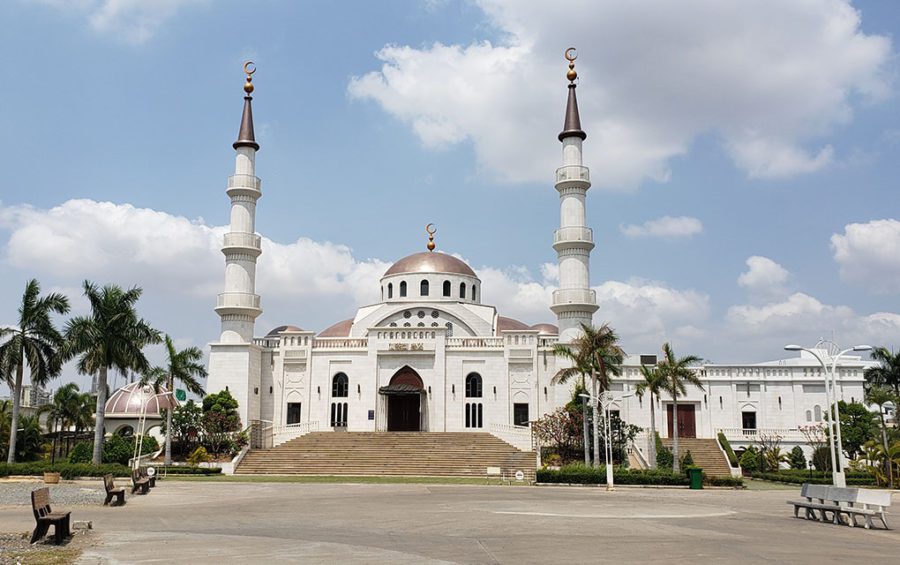Relations between Cambodian Muslims and others have normalized after souring last month following a spate of Covid-19 infections linked to a religious gathering in Malaysia, a Muslim community leader said on Tuesday.
After some had expressed worries and didn’t want to sell goods to Muslims in March, now Muslims and majority ethnic Khmer people were close again and doing business together, according to Osman Hassan, a prominent Muslim businessman and secretary of state at the Labor Ministry.
Last month, more than 30 people, who had either attended the Malaysia event or had contact with someone who did, tested positive for the virus in Cambodia. Hundreds of positive cases around Southeast Asia were connected to the religious ceremony, which Hassan said was attended by about 80 people who later returned to Cambodia.
Several Muslims living in Phnom Penh told VOD in March that they had experienced discrimination related to the Covid-19 infections tied to the Muslim ceremony, including people refusing to exchange money, speak with them or frequent their businesses.
Now, days ahead of the start of Ramadan, Hassan claimed interreligious bonds had been restored, and that solidarity signaled success.
“Please continue to maintain unity with each other. If we have good cooperation, if we have good unity that will be a sign of success for all of us,” Hassan said during a press conference at the Council of Ministers building.
Muslims in Cambodia, as in many other nations, will celebrate the beginning of Ramadan and the month-long fasting period this week, not at mosques or with large gatherings, but at home due to the Covid-19 pandemic.
According to Hassan, Muslims have a duty to respect the pillars of Islam, but also duties to maintain their and the country’s health and follow the government’s health advisories.
“We have a duty to practice, but Muslims also have Islamic law that reminds Muslims that we have to protect our own safety. Anyone who abandons himself and lets himself die will also have sinned, and anyone who intentionally transmits [the virus] to others without respect will also have sinned,” he said.
Hassan also announced that a Ramadan dinner scheduled for April 29, which Prime Minister Hun Sen was to attend, was canceled to avoid possible transmission of the virus.
The Health Ministry has confirmed 122 total infections in the country since January, with 110 patients having recovered as of Tuesday.
The Highest Council for Islamic Religious Affairs Cambodia on Monday advised Muslim worshippers to limit gatherings, pray at home and maintain physical distance from each other throughout the month of Ramadan in order to limit the Covid-19’s spread.
Cults and Religion Ministry spokesman Seng Somony welcomed the council’s notice and said the ban on large religious gatherings, which went into effect last month, was still in place so religious worship must be done in small groups and at home.
“If they do fasting as a family at home, they can avoid the risk of transmission,” he said.
Cambodia’s Muslim population numbers some 700,000 people, with 610 mosques and 1,300 Islamic religious teachers nationwide, according to Hassan.













